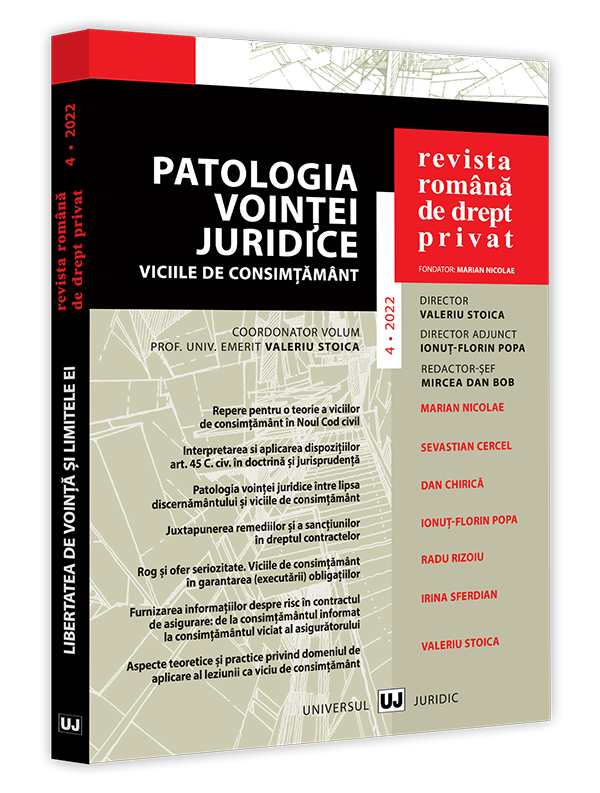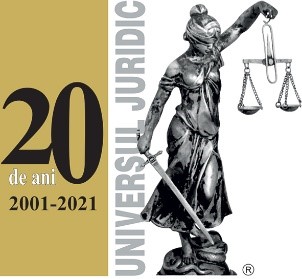TO BE OR NOT TO BE? THE DILEMMA OF THE CONTRACT CONCLUDED UNDER CONDITIONS OF FUNDAMENTAL ERROR
Keywords:
error, option, annulment, confirmation, adaptationAbstract
Error, as a defect of consent, attracts the relative nullity of the legal act, and the gray area of its (in)existence is annulability, when it is possible to have several outcomes, depending on the option of errans between annulment and confirmation of the contract or even of the other party, if it chooses to opt for adaptation and this remedy is possible. The option will often have an economic justification, sometimes even arising from the agreement of the parties, without or with a minimal connection to the original goal pursued by the party. The relative nullity will, as a rule, affect the whole contract, because one of the foundations of the contract, the will of the party, fails, but sometimes, if a party is pluripersonal, it is possible that the error of one or some of them will render the contract void only in part, just as it is possible that only some people will confirm it. This special (plural) hypothesis poses problems not only in the case of annulment or confirmation, but also in the case of adaptation of the contract, especially if several people were in different situations of error. This paper will consider such hypotheses and will include some solutions.
Published
Versions
- 2023-04-11 (2)
- 2023-02-26 (1)









